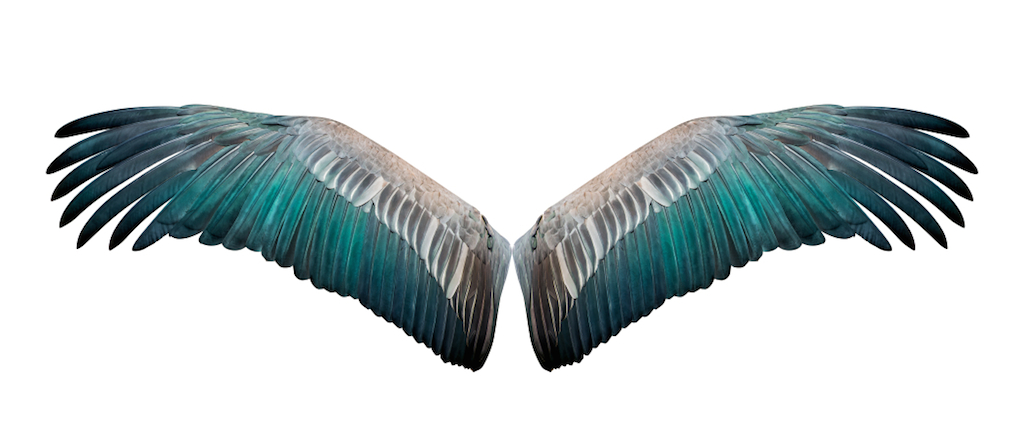wing
(noun, verb)
/wɪŋ/
 LISTEN
LISTEN


Most commonly, a wing is the part of the body that allows birds, insects, and bats to fly. It is also the long arm on the side of an airplane. In sports, wing is one of the playing positions and, especially in politics, a wing is a group inside an organization. To wing means ‘to fly’ or, literally or figuratively, ‘to move really quickly.’ It also means ‘to shoot a bird in the wing to prevent it from flying’ or ‘to shoot a person in the arm or shoulder.’
Example sentences
- The bird spread its wings and flew away.
- Jennifer's seat on the plane looked out onto the wing.
- Mike is playing right wing in this football game.
- Sinn Féin was the political wing of the IRA during the Troubles in Northern Ireland.
- The bird winged past Ellen as she sat in the garden.
- The letter is currently winging its way to its destination.
- The hunter winged the bird before taking the fatal shot.
- The bank robber shot the police officer, but only winged her.
Words often used with wing
in the wings: literally, just off stage in a theater; this expression can be used figuratively to mean that someone is present but not part of the main action. Example: “Rachel has been waiting in the wings for years for her boss to retire so she can take his job.”
take somebody under your wing: take care of someone. Example: “Ben took the new guy at work under his wing and helped him through the first few weeks.”
spread your wings: become independent, like a baby bird leaving the nest. Example: “Parents are always sad when their children leave home, but everyone needs to grow up and spread their wings eventually.”
In pop culture
Listen to Madness singing their song “Wings of a Dove” and watch the video here:
Did you know?
As a verb, wing can also be used informally to mean ‘to do something without any preparation.’ Example: “I didn’t have time to prepare, so I had to wing the interview.” In this sense, it is often used in the expression wing it. Example: “I didn’t expect to win the award, so I hadn’t written a speech. When they called my name, I just had to wing it!”
Other forms
wingless (adjective), wing-like (adjective)
Origin
Wing dates back to the late 12th century as the Middle English noun wenge, which specifically meant ‘the forelimb of a bird or a bat, fitted for flight,’ as well as ‘the parts of an insect resembling a wing.’ It came into English from the Old Norse vængr (the wing of a bird or an aisle), though its origin before then is uncertain. Some linguists have suggested a Proto-Germanic origin, possibly something like wē-niga, wēngian or wē-ingjaz, which would be a suffixed form of wē– (to blow). Wing is related to the Old Danish wingæ, the Danish and Swedish vinge and the Icelandic vængur (all meaning ‘wing’), as well as the Greek aemi-, the Gothic waian, the Old High German wajan, the German wehen and the Old Church Slavonic vejati (all meaning ‘to blow’), the Sanskrit vatah, the Avestan vata-, the Latin ventus, the German Wind, the Gothic winds, the Lithuanian vėjas, the Welsh gwynt and the Breton gwent (all meaning ‘wind’), the Old Irish feth (air), and of course English words such as Nirvana, vent, weather, wind and window. The meaning ‘one of two divisions of a political party, army or other group’ was first used around the year 1400, while the theatrical sense (common in the expression “in the wings”) did not appear until the late 18th century. The verb, meaning ‘to take flight,’ dates back to around the year 1600 and comes from the noun. The sense ‘to fit with wings’ appeared in the early 17th century. The meaning ‘to shoot a bird in the wing’ was first used in the early 19th century, and it was figuratively applied to shooting a person in the arm or shoulder by the mid-19th century. The colloquial sense ‘to do something without preparation’ dates back to the late 19th century, and is based on the theatrical sense, on the notion of actors learning their lines in the wings, right before going on stage.
Word of the Day is released Monday through Friday.



